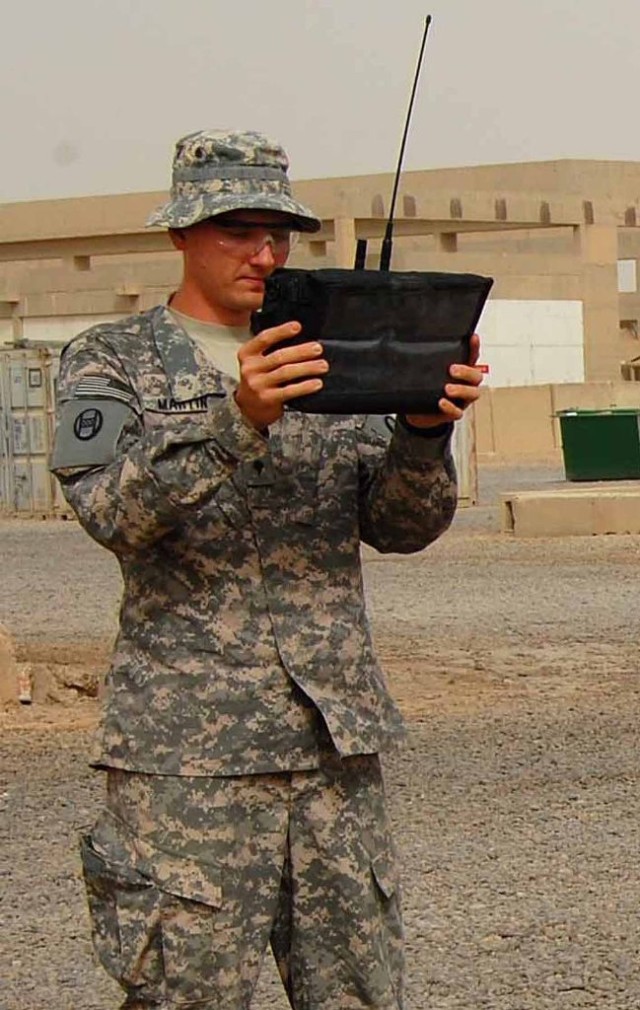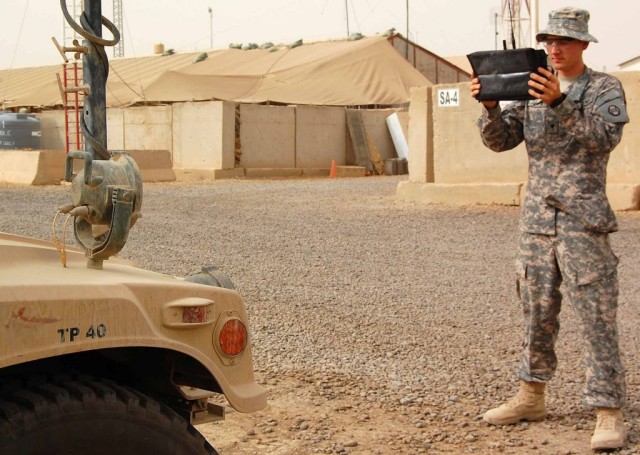BAGHDAD - A soft spoken communications specialist speaks volumes to fellow Soldiers by checking radio signals on their vehicles before missions; making sure they hear each other loud and clear.
Spc. Russell Martin, of 150th Armored Reconnaissance Squadron, 30th Heavy Brigade Combat Team, checks most electronic components on Headquarters Troop vehicles before they roll out on missions from Camp Stryker.
"The only thing that will stop a vehicle from going out on a mission is communication or CREW (electronic warfare system) problems," said Martin. "I am responsible for checking CREW systems on about 100 or so vehicles."
The native of Bluefield, W. Va., grabbed a spectrum analyzer, which looks like a hand-held computer keyboard with an antenna attached, and stood a few feet from the vehicle to test the signal strength of one of its electronic systems.
A picture pops up giving information that Martin, who trained on the specialized systems for 17 weeks at Fort Gordon, Ga., can decipher. The data is entered into a computer which feeds the information into a spreadsheet that's easily accessed when vehicles prepare to exit the gate; giving commanders a "thumbs up" that the systems is working properly.
"He's a good worker; you don't have to look over his shoulder," said signal noncommissioned officer in charge, Staff Sgt. Matthew Whitt, of Glen Lynn, W. Va. "Give him a task and it's done."
This is Martin's first deployment and he has mastered the art of volunteering. He volunteered to help spot check radio problems and changes radio communication signals weekly during his spare time.
"He is the one man who checks all the CREW systems," said signal officer, 2nd Lt. Robert Mills, of Huntington, W. Va. "He volunteered to come on this deployment even though he is in the 'College First' program. He has already volunteered to stay here in the rear as long as needed when the rest of us return [to West Virginia at the end of the deployment]."
The National Guard's "College First" program allows qualified applicants to enlist, but not deploy for at least two years.
The pre-med student, who completed his first year at Bluefield State College, said he doesn't mind staying here a little longer if needed; the extra money will help out with college expenses.
Martin sits at his desk with a list of about ten vehicles that need CREW systems checked.
"Every day is pretty much the same ol' cycle," he said. "They roll in, I check them out and then they roll out."




Social Sharing